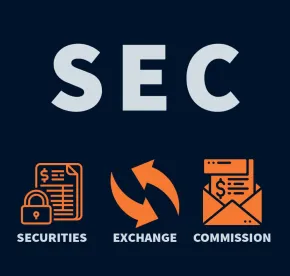In a significant victory for the SEC, US District Court Judge Paul J. Barbadoro granted summary judgment to the SEC in what is the first enforcement action targeting a cryptocurrency not issued via an initial coin officer (“ICO”). The Court ruled that LBRY Inc. offered and sold unregistered securities in violation of the Securities Act of 1933 when it sold its blockchain token LBC.
What is LBRY/LBC?
LBRY markets itself as a decentralized, open-source video and content sharing platform – the blockchain alternative to Youtube. LBRY Credit, or LBC, is the native token of the LBRY Blockchain, and is used to purchase anything on the LBRY Network or interact with content on the network.
What Did the Court Decide?
The only questions before the Court were:
1) Whether LBRY offered LBC as a security; and
2) Whether LBRY had fair notice that it needed to register its offerings as a security.
The Court answered both questions in the affirmative, and granted summary judgement to the SEC.
A Security or Not a Security?
The Court answered this question by applying the Howey Test to determine whether LBC was an “investment contract” because it involved (1) the investment of money (2) in a common enterprise (3) with an expectation of profits to be derived solely from the efforts of the promoter or a third party.
In reaching its conclusion, the Court looked to LBRY's business model and representations to potential purchasers, which it determined “led potential investors to reasonably expect that LBC would grow in value as the company continued to oversee the development of the LBRY Network . . . LBRY has - at key moments and despite its protestations - been acutely aware of LBC’s potential value as an investment. And it made sure potential investors were too.” The Court cited a number of LBRY's blog posts, Reddit comments, and emails from company executives indicating that LBRY was publicizing the price increase of LBC on secondary markets and the token’s 10-fold jump in market capitalization. The Court went on to note that all these communications “are representative of LBRY’s overall messaging about the growth potential for LBC, and thus the SEC is correct that potential investors would understand that LBRY was pitching a speculative value proposition for its digital token.” The Court concluded that LBRY’s messaging amounted to precisely the “not-very-subtle form of economic inducement” that evidences the Howey test’s “expectation of profits” requirement.
Another factor that the Court identified was that LBRY retained a tranche of hundreds of millions of LBC for itself. Retaining this amount of LBC indicated it was “motivated to work tirelessly to improve the value of its blockchain for itself and any LBC purchasers” thus leading purchasers to understand that “they too would profit from their holdings of LBC as a result of LBRY’s assiduous efforts.”
One of LBRY’s principal arguments was that because LDC was a utility token – users had to spend LDC to interact with the services – it was not a security. The Court was unpersuaded by the argument that even if LBC purchasers acquired the token with the intention of using it rather than holding it as an investment: “nothing in the case law suggests that a token with both consumptive and speculative uses cannot be sold as an investment contract.”
Takeaways
The SEC’s victory in this case is an incremental, but important, step in their efforts to regulate the digital asset space. The SEC succeeded in convincing a federal judge that not only was a particular token a security, but the fact that it was a utility or consumptive token was largely irrelevant to the Howey analysis. This means that all companies entering the digital asset space, whether launching a decentralized app (“dApp”), issuing a token, or minting an NFT should think critically about how the SEC will view the project and whether, years later, the SEC might come knocking and claim that a blockchain innovation is a security. As the Court’s analysis emphasizes, those leading blockchain-based projects must be extremely careful and review all public statements by the company in formal filings, blog posts, social media, or any other forum. The Court's are looking at these and so should you - BEFORE they are published!
SEC Granted Summary Judgment Against New Hampshire Issuer of Crypto Asset Securities for Registration Violations





 />i
/>i

